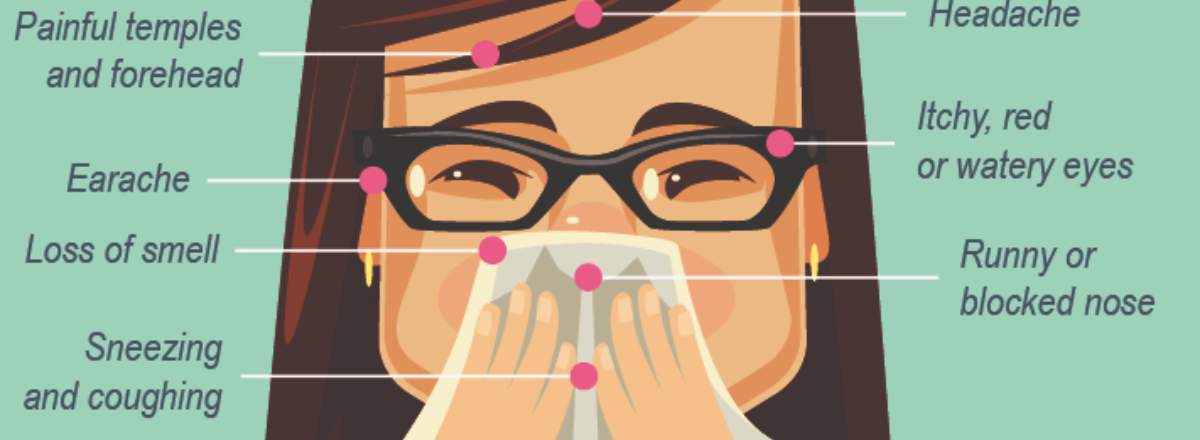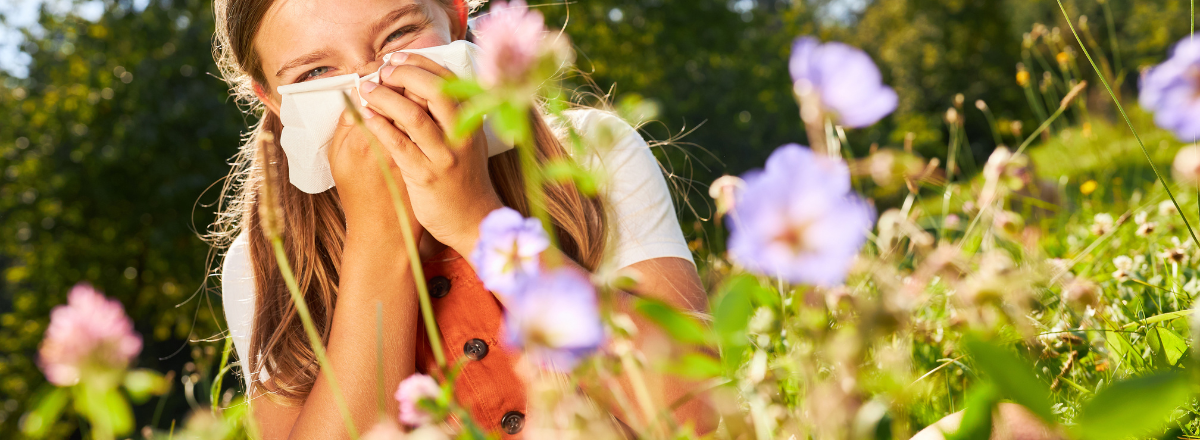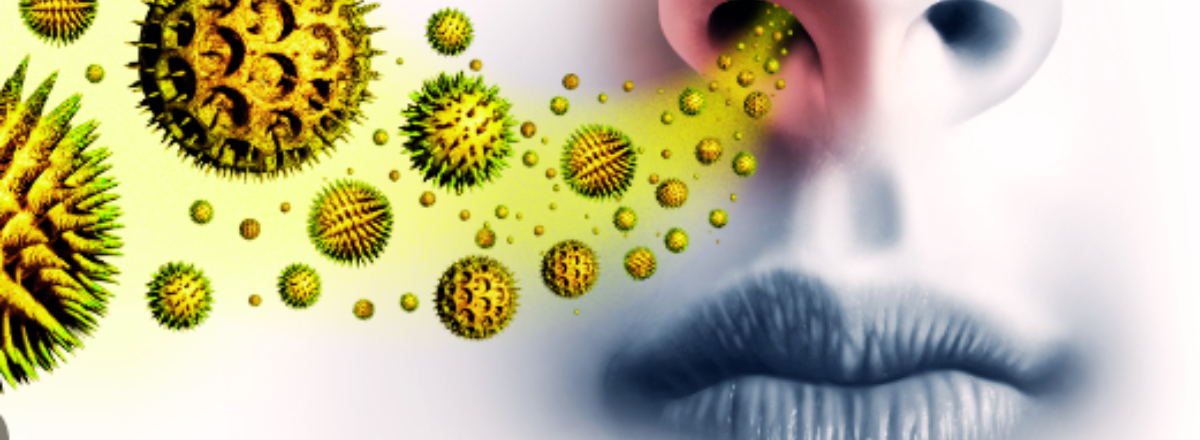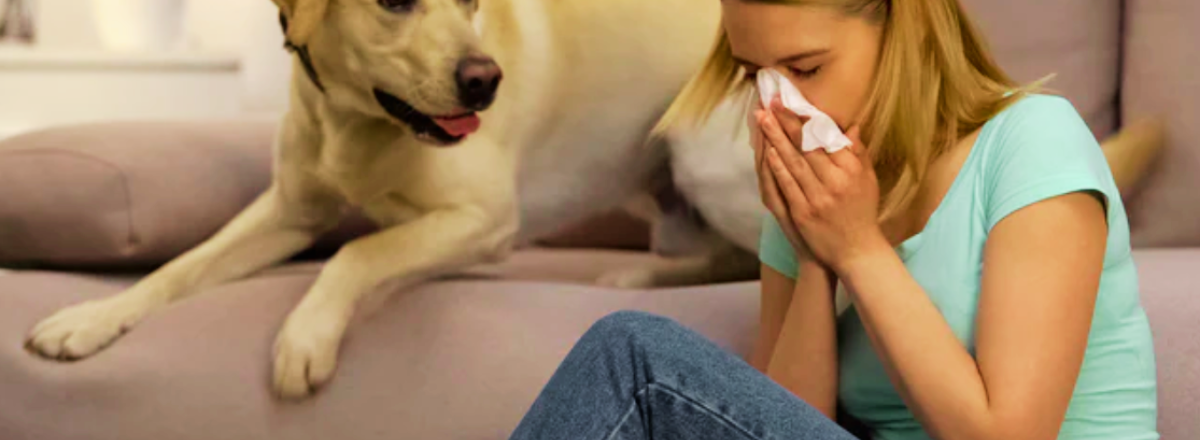If your nose is running, your eyes are itchy, or you’ve got cold-like symptoms you just can’t seem to shake, there’s a strong chance you’re suffering from seasonal allergic rhinitis, also known as ‘hay fever’. Affecting 1 in 5 of us in the UK (source: NHS Inform), it can kick in any time from March and last until October – depending on which pollen you’re allergic to.
Although symptoms will be mild for most, for others they can be pretty debilitating, affecting sleep, work and socialising – but there are things you can do to stop it impacting day-to-day life, says ZoomDoc’s Chief Medical Officer, Dr Kenny Livingstone. ‘Understanding what to take and when can make a huge difference to keeping symptoms under control,’ he says.
So if you’re keen to stop hay fever symptoms spoiling your summer, here’s what this doctor wants you to know …
- Symptoms can be confused with colds

Hay fever is usually worse between late March and September, especially when it’s warm, humid and windy.
Hay fever symptoms can be very similar to colds and even COVID but there are several ways to tell it apart.
Firstly, hay fever tends to go on for longer than a cold, which tends to last for a week or two at the most. Hay fever can last for weeks or even months, and symptoms will flare up and down according to the weather and pollen count.
Hay fever symptoms also usually improve with antihistamines – medication that calms an allergic reaction – so if you thought you just had the world’s longest cold, it could be worth taking some to see if it helps. (Read more about hay fever medication below).
Lastly, hay fever doesn’t cause a fever, unlike COVID, flu and other illnesses with similar symptoms. If you’re feeling particularly unwell with a high temperature, it’s more likely to be COVID, flu or an infection. See your GP if symptoms don’t improve.
- Knowing your trigger is key

Hay fever symptoms is an allergic reaction to pollen. It contains proteins that can cause the nose, eyes, throat and sinuses to become swollen, irritated and inflamed.
Hay fever is an allergy to pollen, but did you know there are lots of different types of pollen, each with their own seasons? Knowing which one you’re allergic to can help you work out when to start taking your medication, which should ideally be about two weeks beforehand. (More on this below.)
In the UK, tree pollen begins first, starting as early as March and running until May. Grass pollen is the most common hay fever trigger, with the season starting in May and lasting until July. Weed pollen can be any time but usually causes problems for hay fever sufferers later in the summer, from late June until September. It is, however, possible to be allergic to more than one pollen!
Keep an eye on the pollen forecast here.
- Pre-empting pollen is everything
When pollen enters your eyes, mouth and nasal passages, the allergic reaction begins and symptoms such as sneezing, congestion, itchy eyes kick in.
Managing your symptoms can be hard if you’re constantly playing catch-up. If you’re a regular hay fever sufferer, being one step ahead of the pollen is key to relieving and reducing your symptoms – even keeping them away completely. Do this by taking your medication 1-2 weeks before you need it to allow your body to have it in your system already, ready to block the reaction in the first place.
If it’s too late and you’re already suffering this year, make a note in your calendar for this time next year. Work back two weeks and remind yourself to start taking antihistamines before the season starts.
- Medical help is at hand
There are lots of types of hay fever medication that can help. Start by taking over-the-counter decongestants, nasal sprays or antihistamines, which help calm the allergic reaction. Some antihistamines can make you a little drowsy, so ask your pharmacist for the best option for you. Remember to take them regularly so they build up in your system, giving you the best form of defence against the pollen.
If you’re getting no relief from over-the-counter meds, you may need something stronger. Visit your GP or make an appointment with a private ZoomDoc GP for medication advice or prescriptions for stronger antihistamines or a nasal corticosteroid spray, to help calm the inflammation.
- Immunotherapy could be an option
If your hay fever symptoms are out of control and are impacting your life, it could be worth trying something called immunotherapy. This is a specialist treatment that helps you slowly build up your immunity to pollen. To get a same-day private referral letter to see an allergy specialist, simply select ZoomDoc’s ‘GP Referral Letter’ service.
- Lifestyle changes can make a difference
Once your symptoms are under control, keep them that way by making sure you keep pollen out of your home and out of your system, as much as you can. Keeping windows and doors closed, not letting pets sleep on your bedding and not drying laundry outside can all help.
Other top tips, recommended by the NHS include:
- putting Vaseline around your nostrils to trap pollen
- wearing wraparound sunglasses to stop pollen getting into your eyes
- showering and changing your clothes after you have been outside to wash pollen off
- vacuuming regularly and dusting with a damp cloth.




